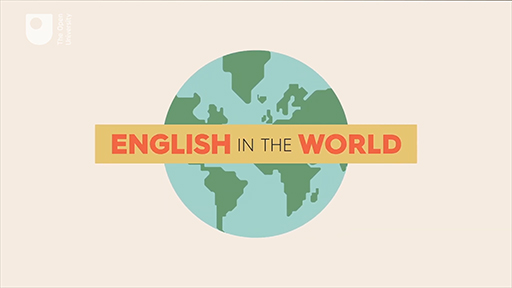2 English in the world
There’s a difference between language as a human faculty and a language such as English, Kiswahili or Japanese. Language (the faculty) is an abstract concept. English, Kiswahili and Japanese are concrete entities. They have their own specific histories and are used by particular communities who nearly always have a strong relationship with ‘their’ language. In Section 1, you looked at language as a general faculty of humankind. Something that’s innate to people in New Zealand, Tanzania or Japan, and everywhere else in the world. In this section, you’re going to look at a particular language, English. And you’ll start by looking at its history: at where it came from, how it developed, and how it has come to be the global force it is today.
What we call ‘English’ today is very different from the English that was spoken 1,500 years ago. In fact, the English language had been around for about 400 years before it even started to be called ‘English’. Its origins lie with a group of Germanic tribes from north Europe – who today we collectively refer to as the Anglo-Saxons – arriving on the island of Great Britain sometime during the fifth century AD. It took root in the country and began to be spread across the population there. But it wasn’t until the ninth century that the term ‘English’ began to be regularly used to refer to the language.
So how did the unnamed language that was originally spoken by a few tribes on a small island off the coast of continental Europe develop into the world’s pre-eminent lingua franca? And how has the language itself changed over the centuries as it’s been spread around the globe?
The next animation addresses all these questions, while also looking at how contact between English and other languages and cultures has had an influence on how the language is used in different parts of the world today.
Activity 2
While watching the video, look out for:
- the way that historical events have played a vital role in how English developed
- examples of how the form of English has changed from the period referred to as Old English to the language as it’s spoken today
- examples of words which have been introduced into the vocabulary of English from other languages (what are known as ‘loanwords’) as English speakers came into contact with speakers of other languages as a result of the historical events mentioned above.
Make some notes in the text box below and save your answer. There is no comment for this activity.

Transcript: Video 2 English in the world
[MUSIC PLAYING]
[MUSIC PLAYING]
